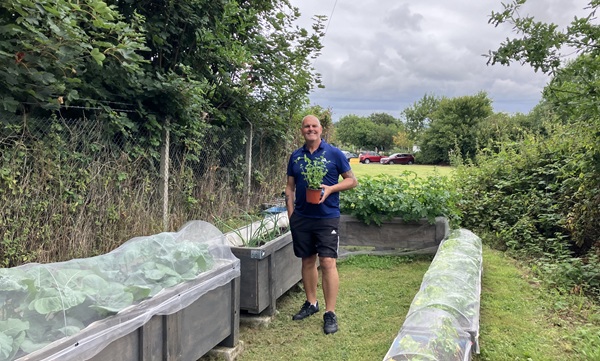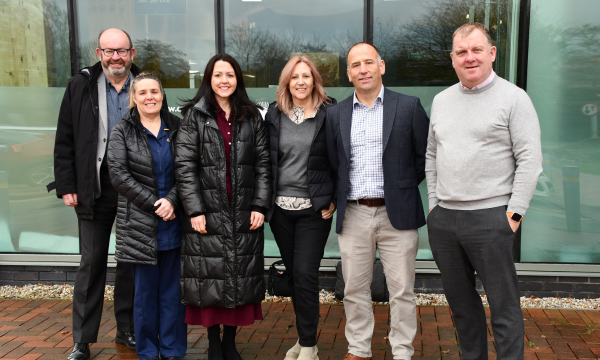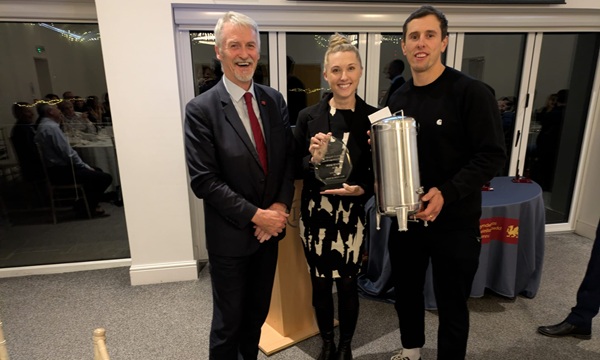Essity, the global hygiene and health company behind brands including Tork, Cushelle, and Plenty, has swapped pulp for potatoes at its historic Oakenholt paper mill in Flintshire.
An employee has transformed once-unused land into a thriving vegetable garden to boost sustainability, wellbeing, and community spirit.
The project was backed by the mill’s Works Council, which encourages colleagues to put forward ideas for local initiatives that matter most to them. From food bank donations to partnerships with nearby charities and hospitals, the council helps to ensure Oakenholt’s community roots remain strong. The firm said this reflects Essity’s wider culture of empowering employees to shape their workplace, fostering pride in where they work, and supporting wellbeing as part of everyday life.
The idea for the vegetable plot came from Shaun England, a machine operator at Essity’s Oakenholt mill, who suggested turning the unused land into an allotment for colleagues. With support from the Works Council, Shaun built raised beds using only upcycled and recycled materials – including redundant paper machine fabrics, wire and felt boxes – and sourced compost from the local recycling centre.
Now in its first season, the garden has already produced potatoes, onions, lettuce, beetroot, radish and mint. Shaun shares the harvest with colleagues and plans to expand the plot further next year. He also created the upcycled flower boxes at the entrance to the site, adding to the team’s sense of pride in the place where they work.
Shaun said:
“It’s always been a dream of mine to grow my own food, and thanks to Essity and the Works Council, I’ve been able to make it happen. The dry weather made it a challenge, but I’m proud of the results and excited to keep planting and expanding the plot.”
As well as promoting healthy eating and outdoor activity, the initiative is helping colleagues connect with nature, relieve stress, and support their mental health.
Dawn Harris, Quality and Environment Manager for Oakenholt, Skelmersdale and Stubbins mills, said:
“This is a fantastic example of how creative ideas can transform the way we use our space. By reusing materials and encouraging outdoor activity, the veg plot is good for the environment, good for wellbeing, and good for team spirit.”
With roots in Flintshire since 1875, the Oakenholt mill employs 62 people and produces paper for both branded and own-label products used by the NHS and major retailers.















